How To Use Protein For Weight Loss And Muscle Gain?

Protein for weight loss and muscle gain
Are you looking for the best diet for weight loss? Do you want to build strong muscles? If yes, then protein is the ultimate solution for you. Protein is one of the most essential nutrients for the repair and building of body cells. Moreover, protein-rich foods are very helpful in weight loss, muscle gain, and becoming physically fitter. This is because the proteins break down into amino acids upon being digested by the body. These amino acids are responsible for repairing and building body muscles. Furthermore, to boost weight loss, proteins ensure that the body fat is burned instead of muscles. To help you better, here are the best ways to use protein for weight loss and muscle gain.
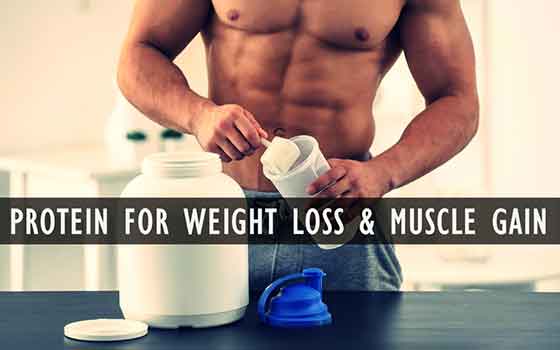
But before that, let’s check out the most essential functions of protein inside the body.
Why Is Protein Important?
Protein is undoubtedly a very important macro-nutrient for the proper functioning of the human body. There are many crucial functions performed by a protein inside the body, as mentioned below.
- Fix, Replace, & Protect – Proteins are highly important to fix, replace, and protect tissues in muscles, hair, bone, and skin.
- Internal Communication – Various communicator hormonal proteins permit and act as a messenger between the internal body organs.
- Enzymes – Most of the bodily enzymes comprise of proteins. These enzymes help in causing and completing thousands of chemical reactions inside the body.
- Transmission & Storing – Proteins are responsible for the transmission and storing of the molecules at the right spots inside the body.
High-Protein Diet For Weight Loss
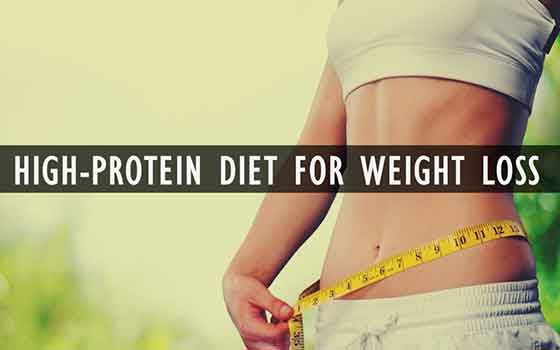
If you’re looking for healthy ways to lose weight quickly, then you must switch to a protein-rich diet. A high-protein diet for weight loss is medically proven all across the world. Fitness experts, nutritionists, and licensed dieticians always recommend this diet plan for people who wish to get back into shape. There are many reasons why a protein-rich diet helps in boosting the weight loss process.
Hunger Management
One of the main ways in which protein helps to lose weight is by suppressing hunger. This is because the macronutrient protein is responsible for the production of hunger-suppressing hormones like PYY & GLP-1. According to medical science, both these hormones help in increasing the feeling of fullness in the stomach. Furthermore, proteins also help in lowering the amounts of Ghrelin (the hunger hormone) in the body. Thus, you end up consuming lesser calories every day and ultimately lose weight.
Metabolism
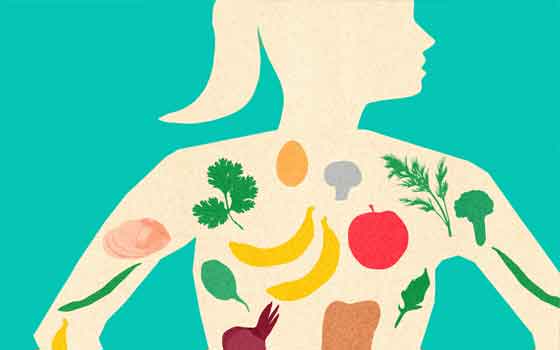
Boosted metabolism is another medically proven reason to adopt a high-protein diet for weight loss. Metabolism is a process of removal of toxins from the body, along with digestion. Faster the metabolic rate and digestion faster will be the calorie-burning process. So that’s how eating protein burns calories quickly inside your body. If the number of calories burnt daily surpasses the number of calories consumed, you’ll automatically lose weight.
Weight Loss & Belly Fat Burner
In several medical studies, a high-protein diet has been linked to weight loss and the elimination of belly fat. This is because protein-rich foods help in oxidizing and burning the excess body fat. For old age people, lower calorie consumption also leads to degradation of muscles and a slower metabolism. Thus, many research studies were conducted to prove the positive effects of a high-protein diet for old age people. As a result, a protein-rich diet helped in improving their metabolism, while also preserving their muscle mass. Thus, it is very essential to consume a high-protein diet for weight loss.
How Much Protein To Consume For Weight Loss?
The common question that comes to everyone’s mind is how much protein should I eat to lose weight? Although, there is no proven theory or formula about the protein requirement for weight loss, yet there are some theories. Most of these theories suggest that a person should eat 1.5-2grams of protein per kg of the body weight. For example, a person weighing 80kgs should consume 120-160g of protein daily for weight loss. This will not only help in weight loss but also in building & preserving muscle mass.
Disadvantages Of High-Protein Diet
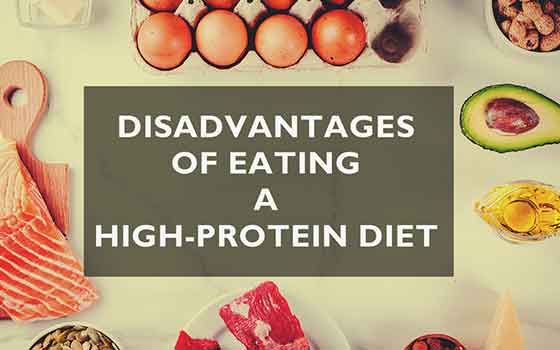
Every coin comes with two sides, and the same applies to the high-protein diet as well. While there are several advantages, there are various disadvantages of a high-protein diet too.
- Weight Gain – While a protein-rich diet helps in weight loss, excess protein consumption can backfire in the long run. This is because the extra protein gets stocked up inside the body as fat. Also, the extra amino acids are eliminated from the body. This further results in weight gain in the long run.
- Kidney Damage – There are no significant medical studies that prove the negative effects of a high-protein diet on healthy people’s kidneys. However, several medical studies have shown that a high-protein diet is harmful to the kidneys of people with ongoing kidney disorders. This happens due to the inability of damaged kidneys to eliminate the nitrogen and waste materials produced during protein metabolism. This nitrogen is present in the amino acids used to produce proteins.
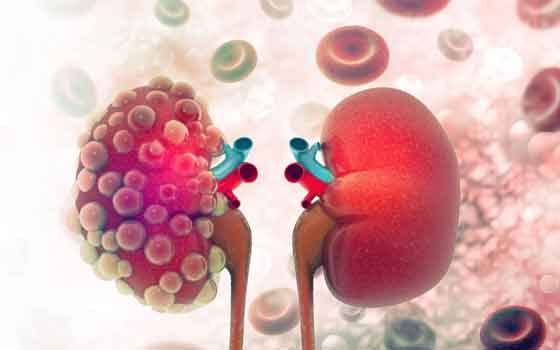
- Constipation & Diarrhea – In a medical study, a high-protein diet was linked with constipation. This happens when a person takes a high-protein diet with low fiber content. Thus, it is advisable to increase your fiber and water consumption to improve your body’s digestion process.

- Cancer Risk – According to several proven medical studies, too much of a high-protein diet can increase the chances of cancer. However, this study only includes excess protein consumption with red meat as the source. Also, the chances are higher in people above 50 years of age. On the other hand, plant-based proteins are known to cause no cancerous effect on anyone.
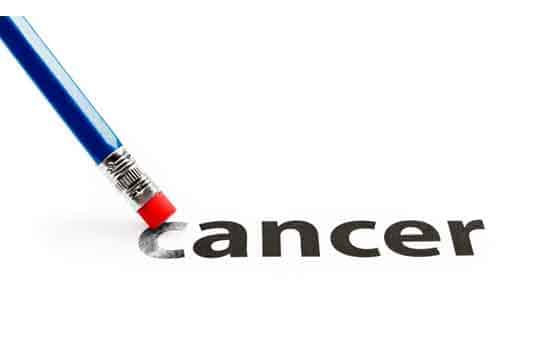
- Heart Problems – High-protein diets that include red meat and full-fat dairy foods are also medically proven to cause heart disorders. This is mainly because of the consumption of high amounts of cholesterol and saturated fats. Thus, it is recommended to consume poultry foods, fishes, and nuts for preventing heart-related disorders.
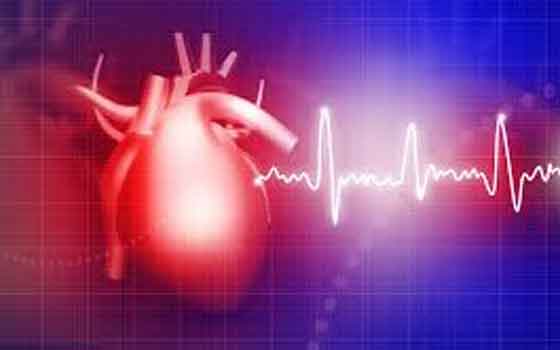
- Other Possible Health Problems – Some other health problems that can be caused by a high-protein diet include diarrhea, dehydration, bad breath, and calcium loss, etc.
How To Eat Protein For Muscle Building?
All the fitness experts around the world recommend everyone to eat protein for muscle building. This is because proteins act as the building elements for muscles in the form of amino acids. Several medical studies have proven that a combination of protein-rich diet and strength training helps in building muscles. This happens because doing strength & bodybuilding exercises create tiny rips in the muscles. These rips are then repaired & filled by the amino acids formed from broken-down proteins. Ultimately, filling these small rips helps in increasing the size and strength of the body muscles.
However, you must understand that only the protein diet wouldn’t help you gain muscles and strength. Thus, you need to eat a balanced diet that includes all the essential nutrients like vitamins, minerals, omega-3s, antioxidants, and complex carbs, etc. Some examples of best foods to build muscles include eggs, salmon, chicken, lean meats, beans, peanuts, milk, and almonds, etc.
The Takeaway!
So this is everything you need to know about using protein for weight loss and muscle gain. If you are looking to build a lean and muscular body, then high-protein is the best option for you. However, it’s highly recommended for you to contact a licensed nutritionist to get a balanced diet plan made for you.
If you have any suggestions or questions, feel free to write below in the comments section.



